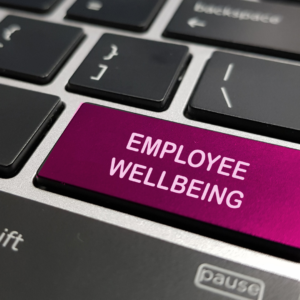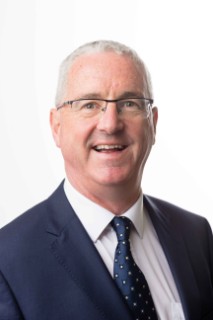 We have had and continue to have eventful times in the job market. Ireland has weathered the pandemic storm and continues to operate at what we regard as “full employment” across most sectors. Retail and hospitality sectors continue to struggle to fill vacancies as the mobile workforce that relocated during Covid has not for the most part returned to fill open positions. Accommodation and cost of living in Ireland continue to challenge the lower paying sectors and many have had to adapt their service offerings to reflect the tight labour market. We have come trough the great resignation that was predicted and Ireland may not have been hit as hard as other economies.
We have had and continue to have eventful times in the job market. Ireland has weathered the pandemic storm and continues to operate at what we regard as “full employment” across most sectors. Retail and hospitality sectors continue to struggle to fill vacancies as the mobile workforce that relocated during Covid has not for the most part returned to fill open positions. Accommodation and cost of living in Ireland continue to challenge the lower paying sectors and many have had to adapt their service offerings to reflect the tight labour market. We have come trough the great resignation that was predicted and Ireland may not have been hit as hard as other economies.
While the news is dominated by global workforce “readjustments” at big tech companies such as Microsoft, Meta, Google and IBM, it is really on the back of an unprecedented growth curve over the last ten years. Most of the global technology companies still employ more staff than they did in 2019. Perhaps there was an over estimation of potential services growth based upon large sales spikes in the readjustment to home working during the pandemic. Forecasts were based on unrealistic patterns and we are now seeing a correction. For any of us who have worked in the tech sector, there is nothing as predictable as the ramp up and down cycle that happens every few years in electronics, software, semiconductor and data sectors.
Ireland is in a good place due to the extraordinary ability we have to attract new business to this little island. Through intelligent, engaged government policy, an educated, smart workforce and business friendly economy, we have had our best FDI year ever with over 24,000 net new roles for IDA clients. This has a knock-on effect on the indigenous sector and each FDI role drives parallel positions in services support and manufacturing. This growth in turn kicks on consumer spending across all sectors. We have over 300,000 people employed in FDI companies for the first time ever and while we see a dip in tech globally, Ireland is proving resilient even though it is one of the most open markets worldwide. This is not confined to Dublin as over 50% of the growth is taking place in the regions.
Galway continues to be a MedTech hub; Limerick has evolved from a dependence on Dell to secure investments from Lilly, Regeneron and J&J; Waterford and Wexford have complemented their strong engineering and food sectors with MedTech and Pharma investments and Cork has a really balanced sector profile across Life Sciences, Tech and Food. With the global emphasis on energy supply and sustainability, Cork has the potential to become a green energy hub with lots of activity across solar, wind and wave industries. The government needs to actively encourage this growth of expertise with planning friendly policies as we have seen the need to reduce our dependence on fossil fuels. Brexit, the war in Ukraine and the pandemic in a strange way have come to benefit Ireland’s attractiveness as a place to do business. We have a stable democracy, business friendly environment with an engaged political will; we are the only English-speaking country in the EU and we have massive supply chain expertise to support the re-shoring to Europe of single sourced Asian supply.
So, there is a positive outlook for Ireland assuming we can keep our cost base in check and increase supply of housing and rental properties. We need to continue to attract multilingual and technical skills to support global services growth and the government has done an excellent job in reducing the work permit application times for non-EU critical skills candidates.
Hybrid working has become a daily demand as we work with clients across all sectors. Most companies where possible offer some form of hybrid or flexible work options. This is driven by competition for qualified talent and retention. The ongoing productivity of home working continues to be measured closely and many multinationals are driving hard to bring staff back to the office. The view from some quarters is that engagement, belonging, peer learning and creativity suffer when people cannot interact in person with a team. This view was echoed strongly recently at the Pendulum Summit by Ellis Watson former CEO of Simon Cowell’s Syco Group. There is a place for flexibility, but it is hard to beat the energy and ideas generated face-to-face in a room. Covid has taught us to reflect and to develop some form of work life balance. Trends are towards working hard during core hours rather than being “always on”. Burn out is real and maybe Gen Z get it by not putting up with hours and unhappiness of a poor work environment.
The future is bright for Ireland and our bright, creative graduates if we can retain them on these shores. We have emigration of choice so the onus is on us as employers to make this great country an attractive and affordable place to live and grow.
Original article: Irish Examiner – US Business In Ireland Supplement

Ken Murphy graduated from University College Cork in 1987 with an Electrical Engineering degree before moving to the US as a Network Design Engineer with BellSouth Corporation. His return to Ireland in 1989 heralded a career which concentrated on the multinational sector, and involved working with companies such as Apple Computer, Cabletron, FMC Automotive, Moog, General Semiconductor and Technicolor.
Ken is a specialist in quality management, purchasing, logistics and supply chain management. He has significant expertise and experience in managing the changing demands of the global media, electronics and automotive sectors at operational and project management levels.
Ken leads CareerWise Recruitment’s Cork operations. He has served on local and national committees of IPICS (The Supply Chain Management Institute), CIPD, the Cork Electronics Industry Association (CEIA), and has completed a three-year term as Chair of the UCC Alumni Board.
Ken has recently been elected as a Director of the Cork Chamber for a four year term to help promote business and drive policy objectives for the Cork Region
CareerWise Recruitment. EastGate Village, EastGate, Little Island, Cork.
Phone: +353 (0) 21 206 1900
Email: info@careerwise.ie